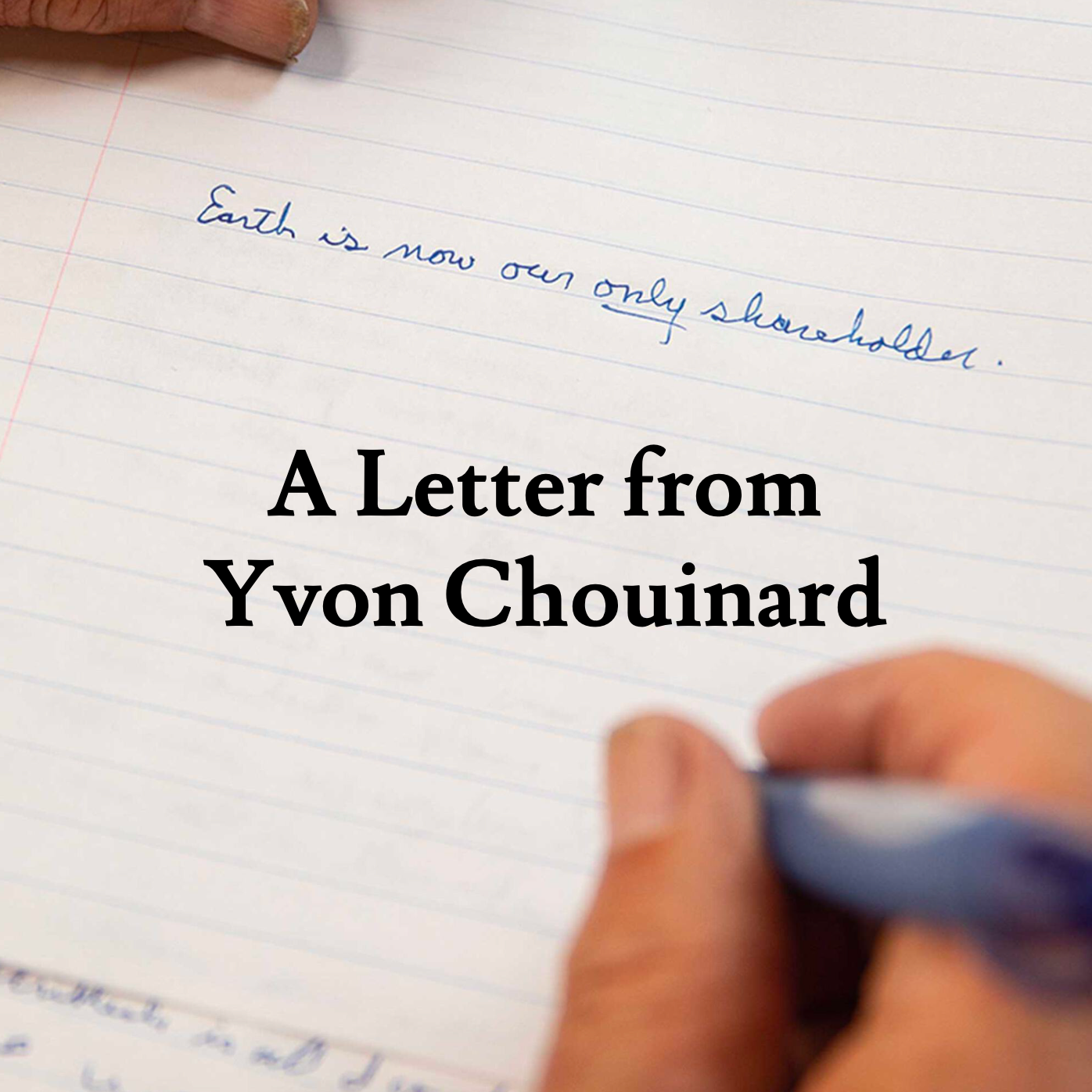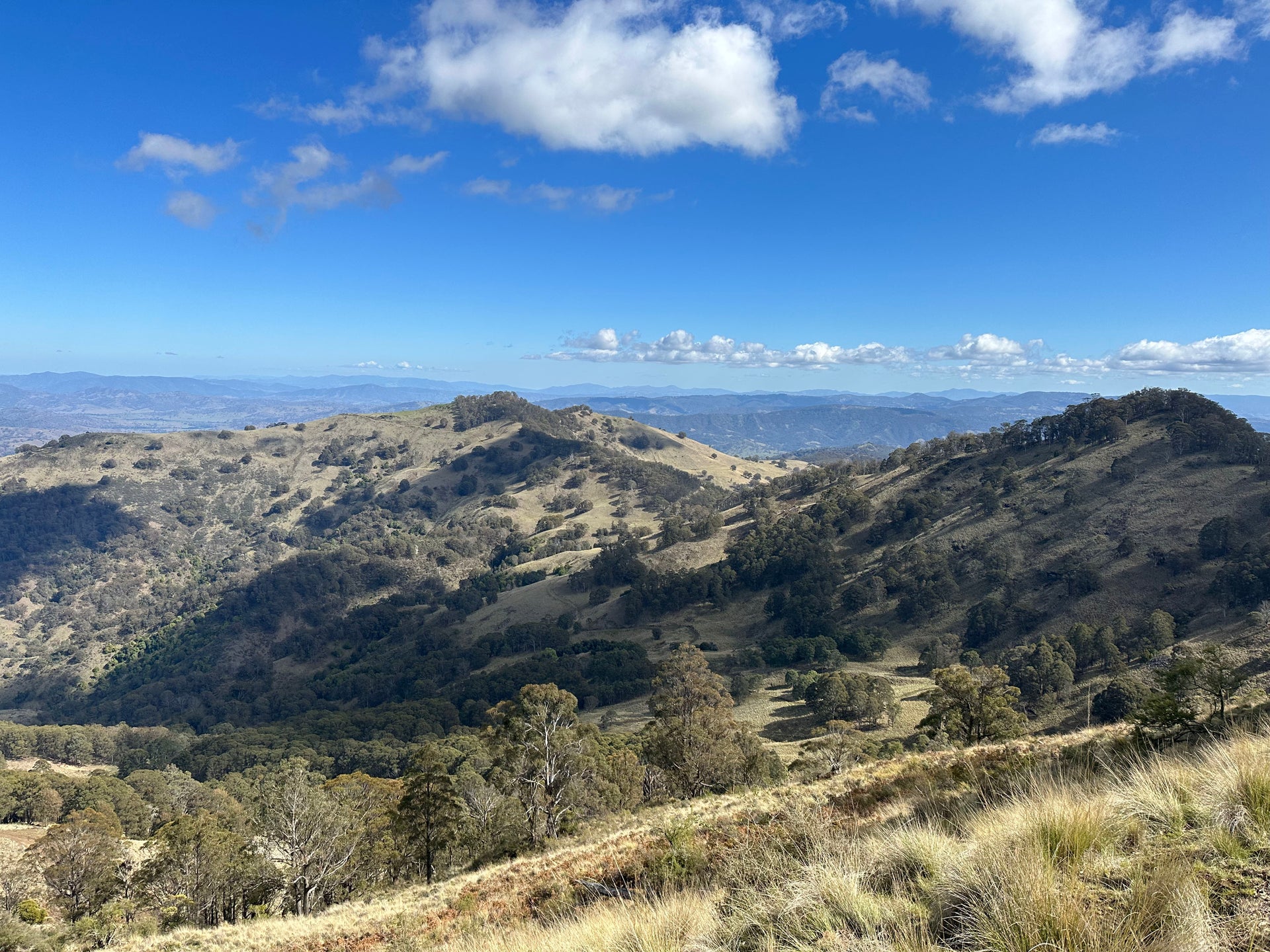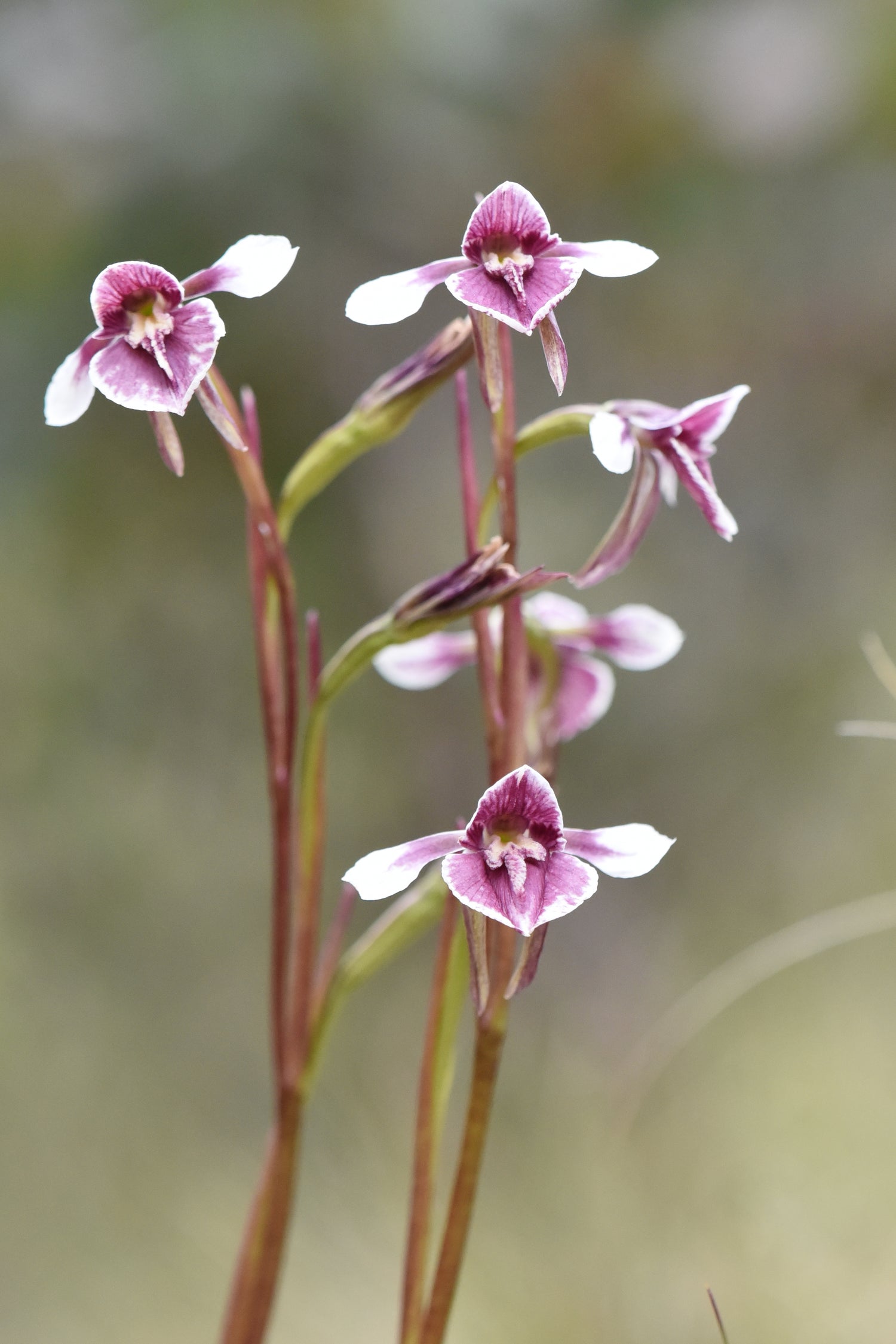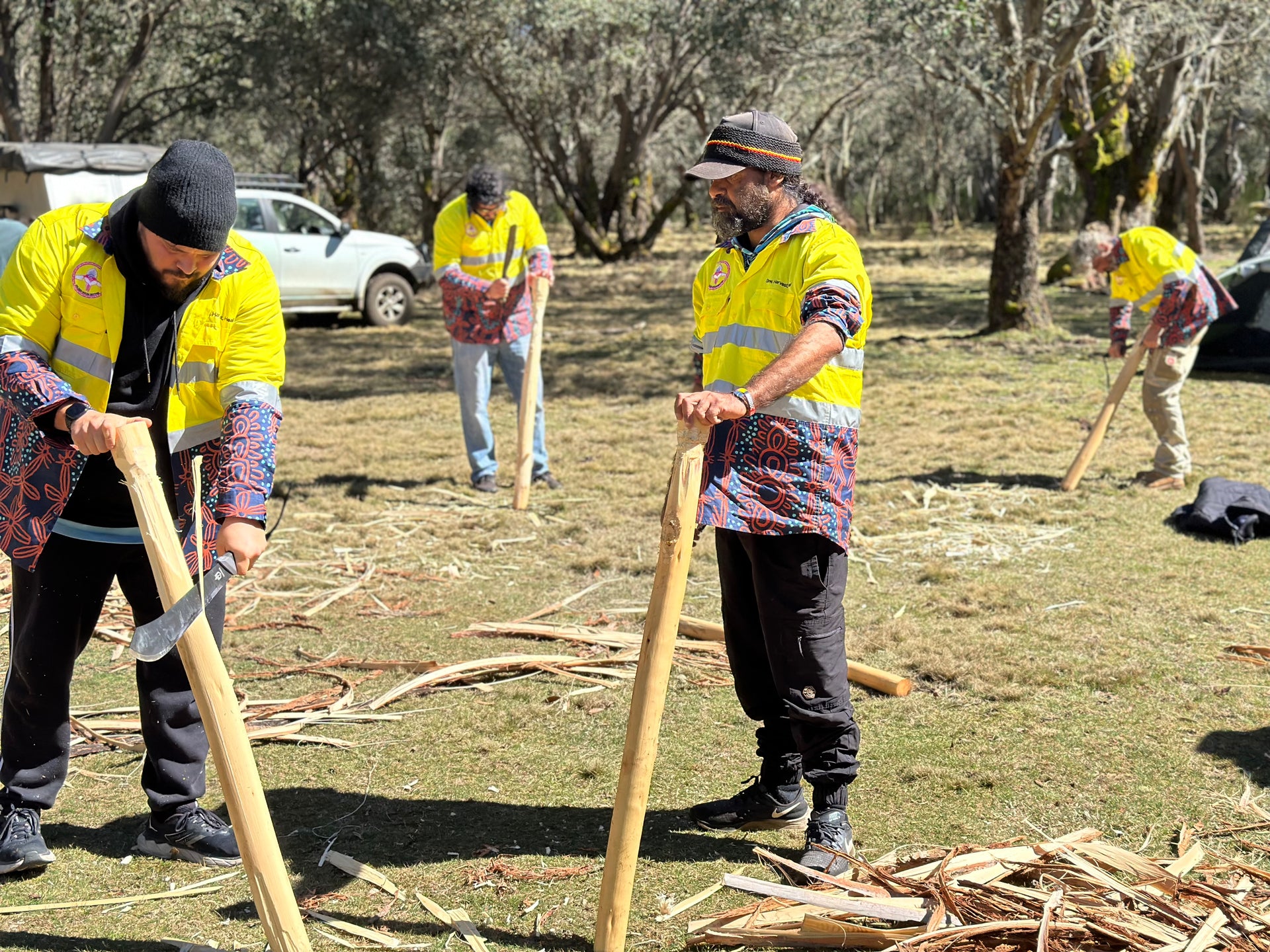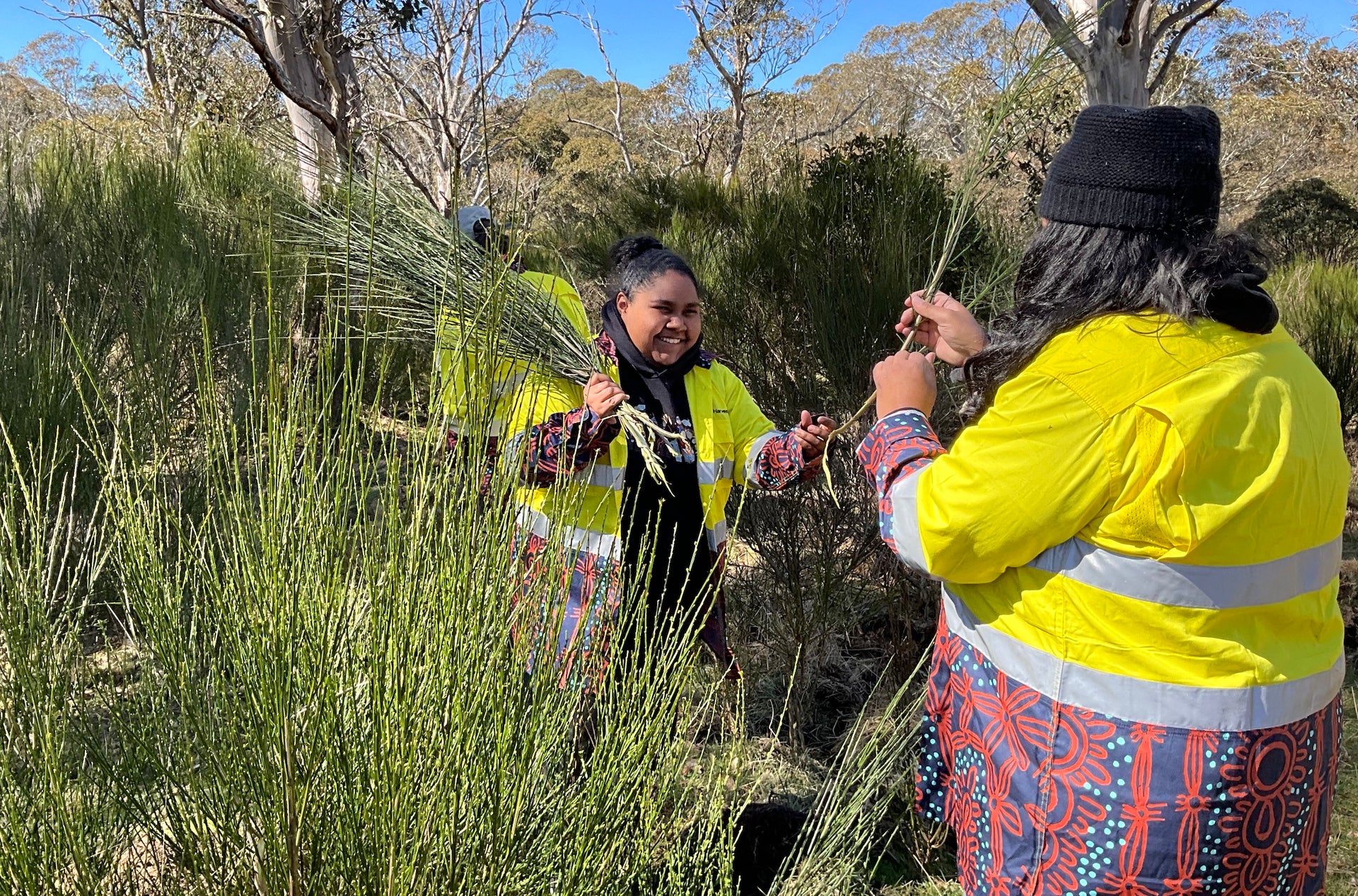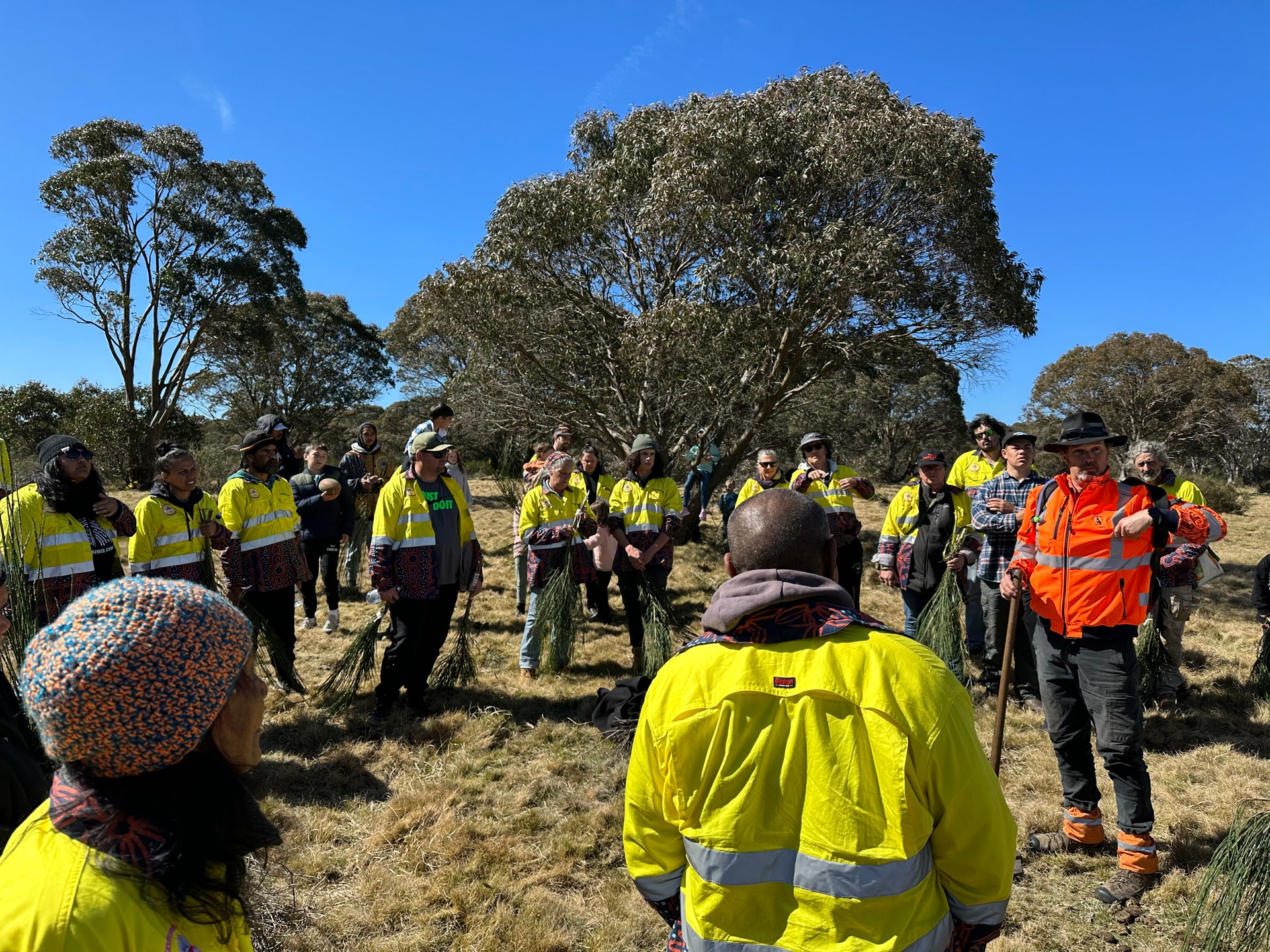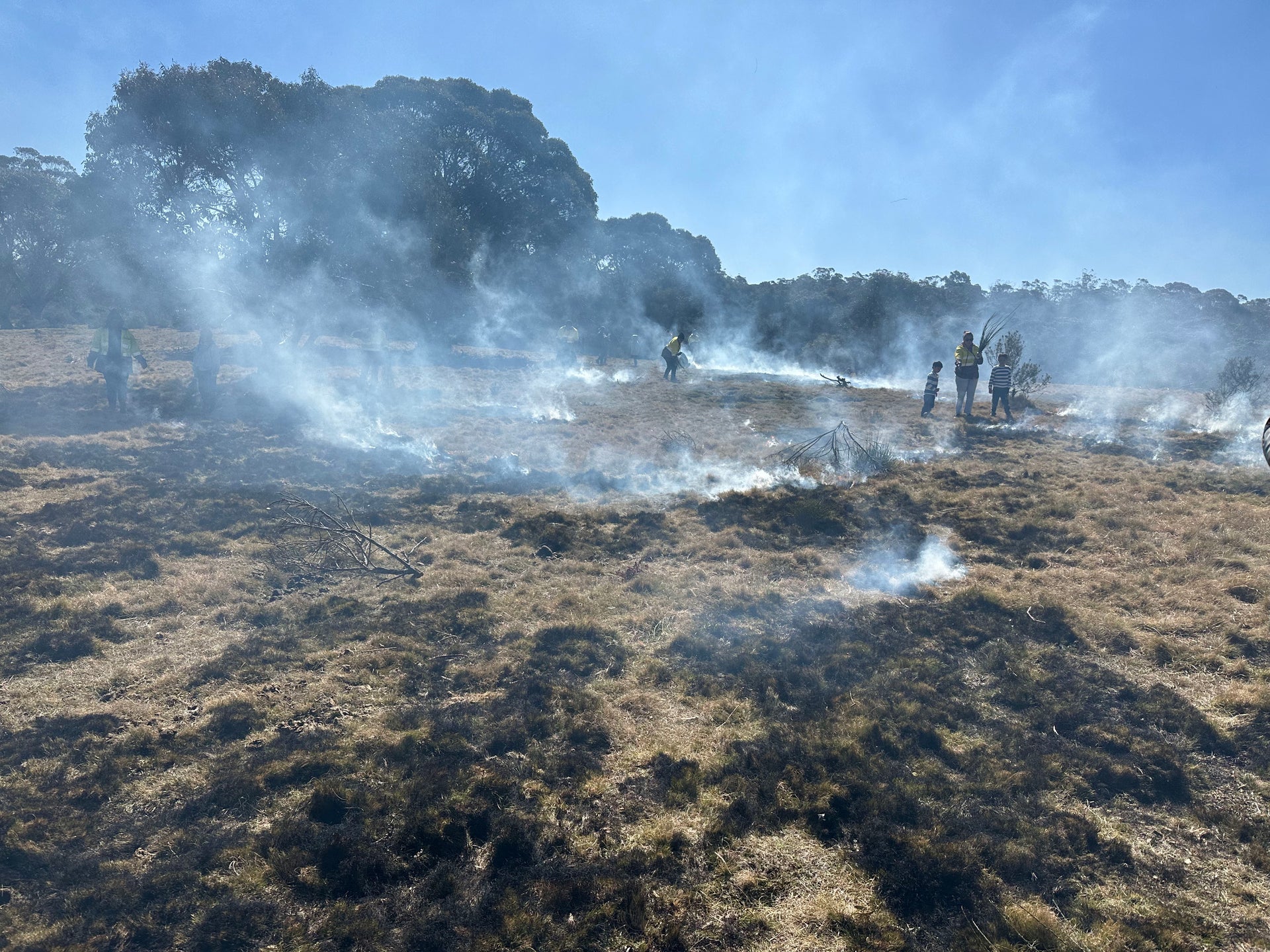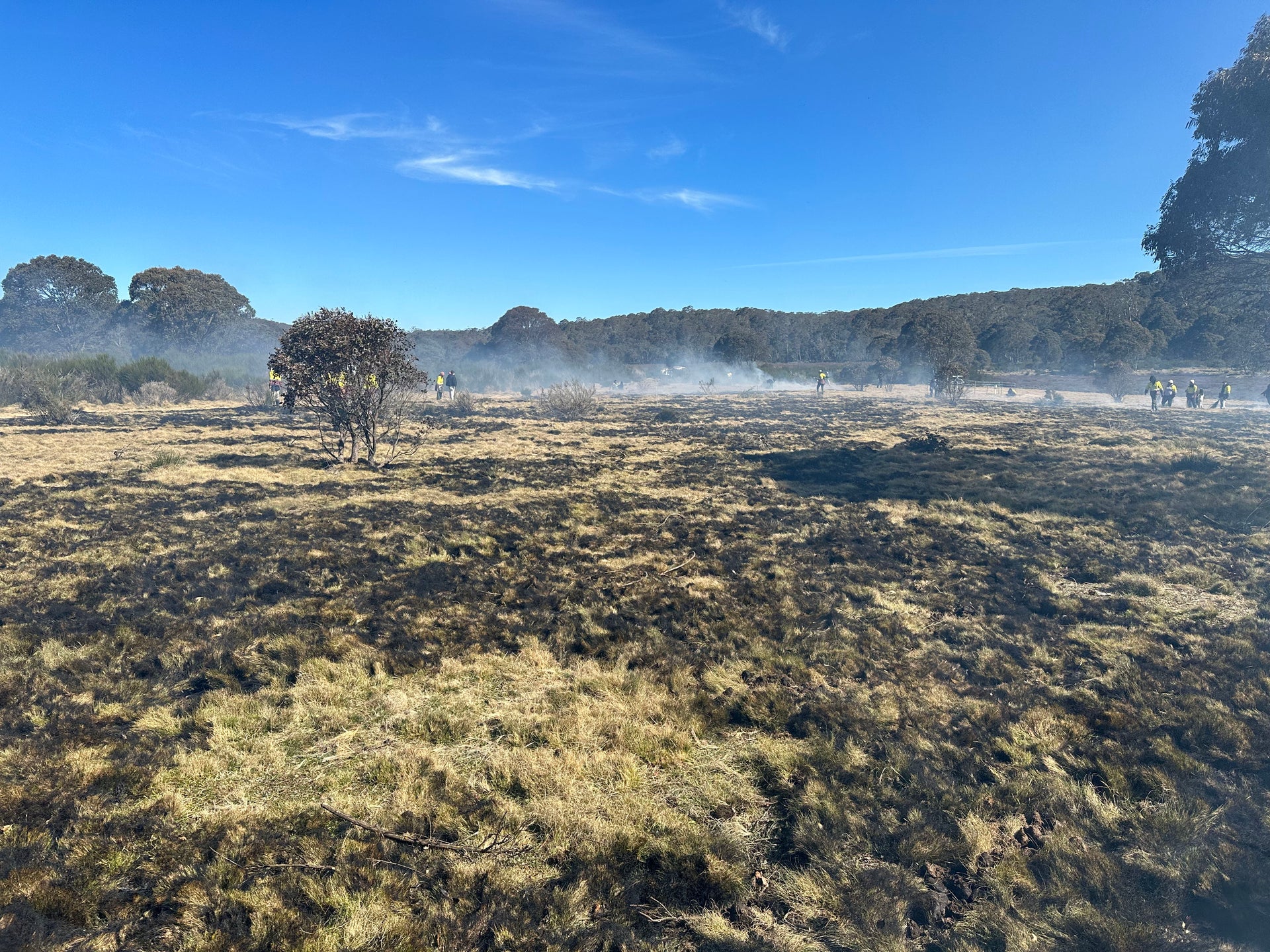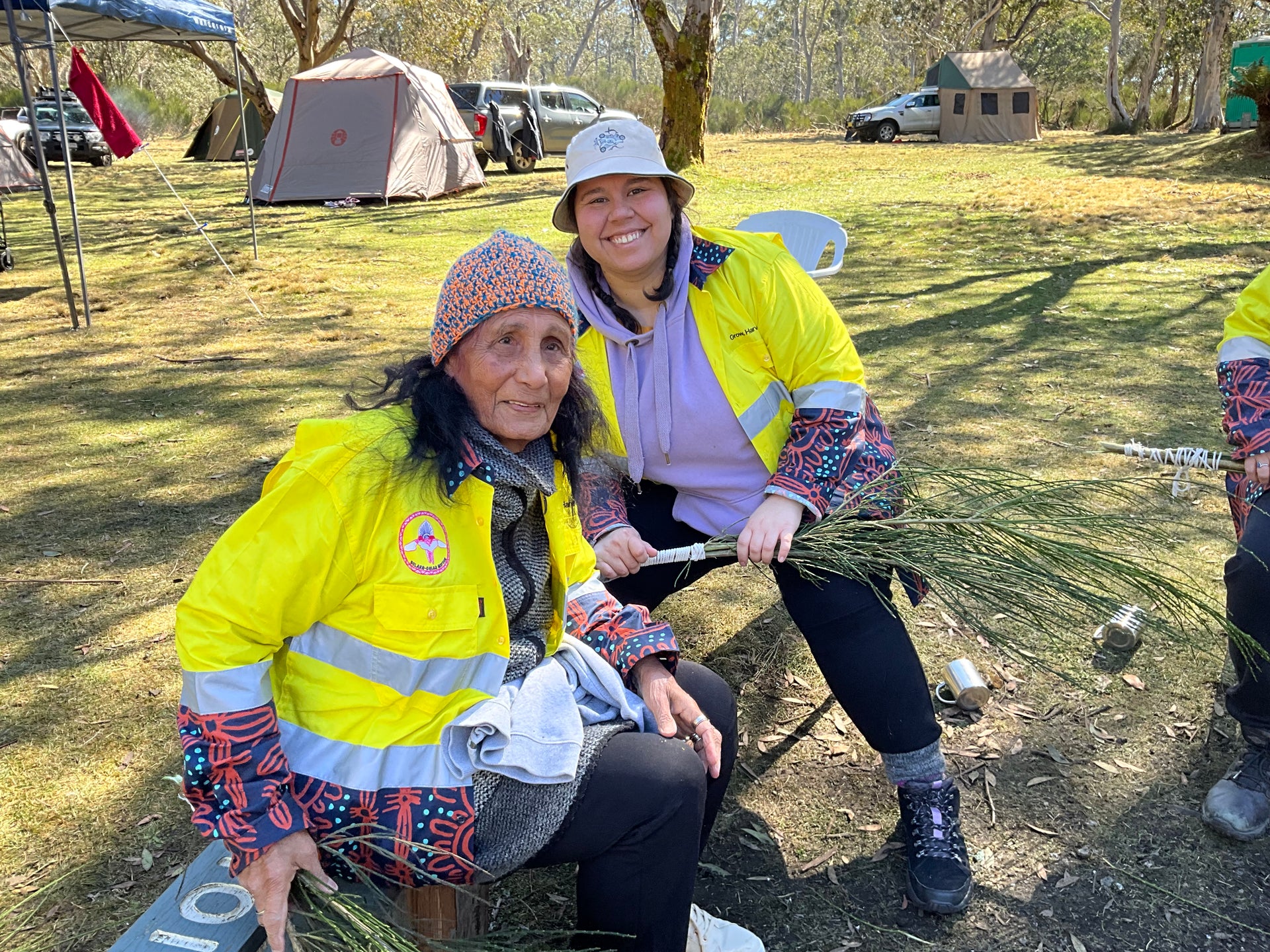For the first time in 50 years, fire has danced across the snow grass plains on the Barrington Tops.
This was not however a simple hazard reduction burn in readiness for the impending summer bushfire season. No, it had far greater significance.
While it was the first controlled burn in the area in decades, it might also have been the first cultural burn on the plain since colonisation.
Led by Worimi Elder and my Aunty, Michelle Perry, the burn was held on the Biyan Biyan plain in the shadows of Mount Barrington, an hour northwest of Newcastle.
The burn was a traditional practice to help propagate the now vulnerable Bularr-Gulga Watuun – a species of orchid endemic to the sub-alpine grasslands of the area.
“Really it was about looking after an endangered orchid that only grows on the plateau of Barrington,” explains Aunty Michelle, “and this gives us opportunity to come back and get on our grandmother's Country, the Cook family.”
My family has a strong connection to the area through my maternal great-grandmother, Jessie Cook, the daughter of renowned Gloucester tracker and stockman Jack ‘Malukut’ Cook.
Sixty people including my family, other Worimi people and members of other Indigenous Nations gathered on the plain to revive the cultural burn and reconnect with Country.
The burn was done in partnership with the NSW Government’s Biodiversity and Conservation Division and the National Parks and Wildlife Service, with assistance on the day from Yarrabin Fire.
“Not only just to start (the burn), but to be amongst it when all the smoke was going and bending down and encouraging that next blade of grass to go, really gave you a sense of what the old people did back in the day to look after Country,” offered Aunty Michelle. “But to be there with all your family and all your mob was quite emotional, and a couple of people came up to me quite emotional, just watching that burn take place.”
The burn was the centrepiece of a four-day cultural camp at the Little Murray campground, with family and friends from various Aboriginal Nations in attendance. Other activities included spear/stick making for the men and singing and dancing in Gathang language for the women.
“We're not all blood related,” offers Aunty Michelle, “but we're all going to walk away as one big family here and hopeful they'll come back to see the outcome of the burn.”
“I think we'd like to offer other people to come onto our Country to experience some of the activities that we can offer and just share culture; share sitting around stories, share sitting around making a walking stick, doing some type of weaving and beading stuff with nature, learning to sing, learning to dance. Invite that out to other groups; our out-of-home care kids, our other men, our other women, our other families. To get them back on Country, to get them connecting.”

